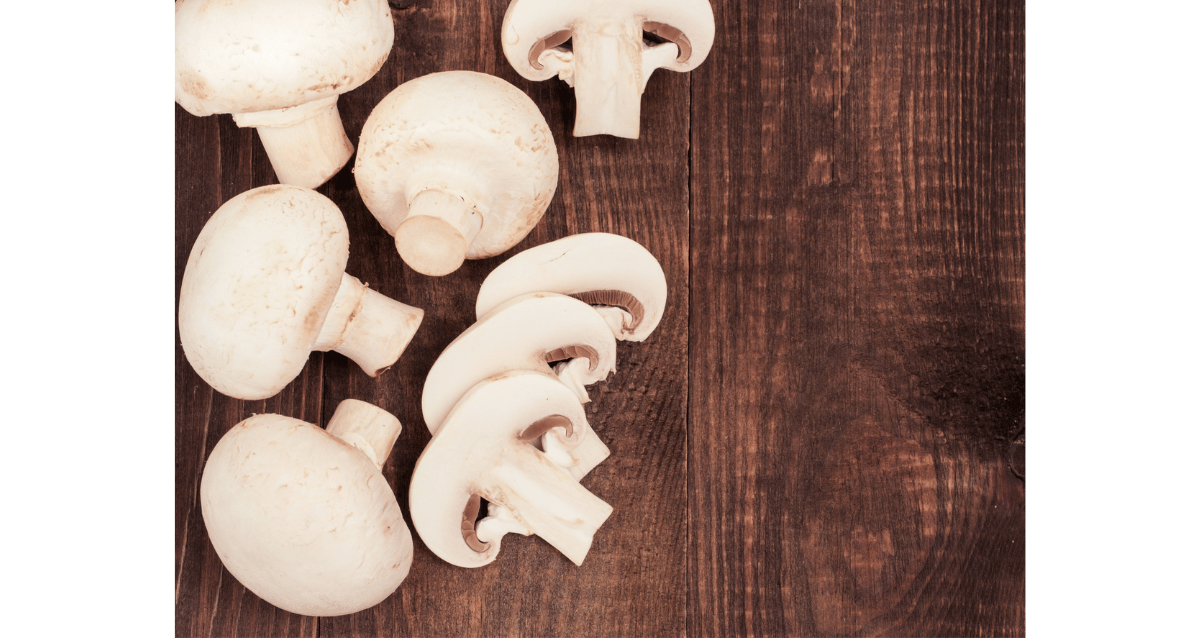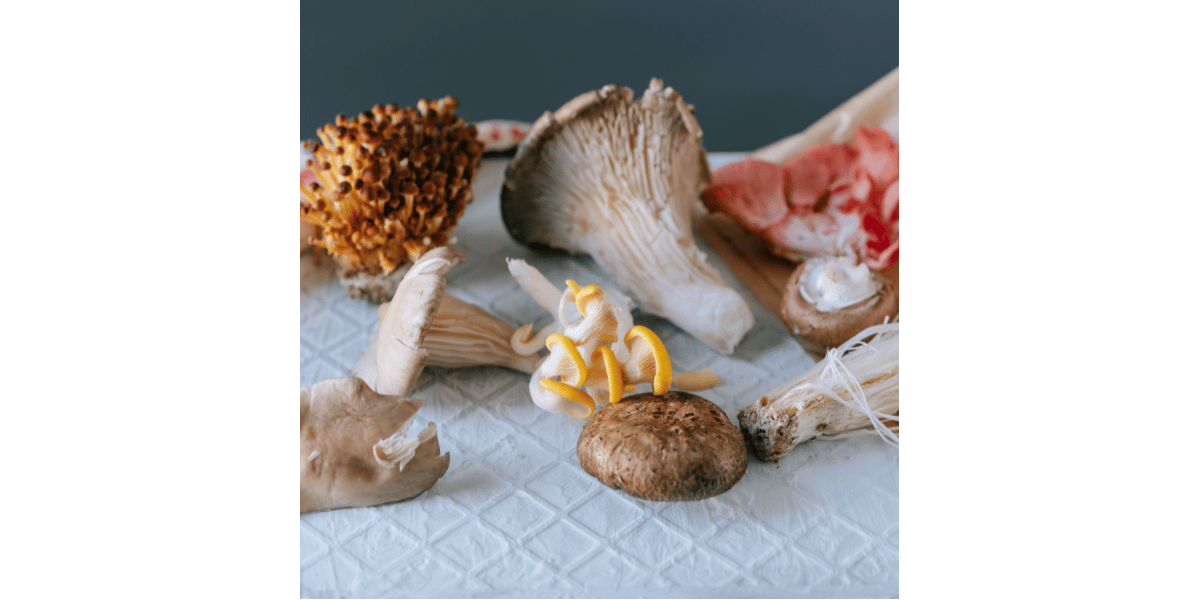Health Benefits of Eating Mushrooms in South Africa (Update)

Here’s your guide to the health benefits of eating mushrooms in South Africa.
Have you ever experienced the excitement of hunting mushrooms after a severe lightning and thunderstorm? It is an exciting adventure through the valleys, crags, and mountains.
Living in the countryside gives you these rare opportunities to experience nature at its best.
I have known for some time that mushrooms are good for your physical health. (Can anyone who grew up in rural KwaZulu Natal not understand these culinary fungi?)
The research found that mushrooms support immune function and can help fight cancer and slow ageing, among other benefits. Other studies are discovering that they can help ease depression and anxiety.
What are Mushrooms?
Mushrooms are a saprophage; hence, they don’t have chlorophyll and need no sunlight.
They grow in mountain crags, forests, and areas with a lot of moisture. And you know another thing about mushrooms? They thrive on eating rotten stuff.
Mushrooms are fungi that produce spores. They get their food from the outside.
Mushrooms contain an ergosterol, a Vitamin D transformation resulting from ergosterol exposure to ultraviolet light.
Scientists have identified thousands of mushroom species.
But we eat only about half a dozen. Some mushrooms have psychedelic compounds (psilocybin) that cause hallucinations or altered consciousness. I experienced this firsthand when my friends Mike and Zoli went crazy after eating them.
Many others in nature, like the death cap mushroom, are poisonous.
Types of Edible Mushrooms

Pexels: Olga Lioncat
More than 14,000 mushroom species exist, including edible, poisonous, and psychoactive varieties. There are also 30 domesticated mushrooms.
Although there are 300 edible mushrooms, only ten are grown for consumers. The most common edible mushrooms are:
- White (includes a white button, portobello, and cremini)
- Oyster: a fan-shaped delicate cap
- Shiitake: a dark brown umbrella cap with a thin cream-coloured stem
- Enoki: long, slender white stems with small white caps eaten raw or cooked.
- Lion’s Mane
- Turkey Tail
- Hen of the Woods
- Beech
- Chanterelle: the cap is a wavy golden trumpet-like shape
- Porcini: a reddish-brown rounded cap with a thick cylindrical stem
- Morel: the cap is a spongy, dimpled, oblong shape
All these are available in supermarkets and are obtainable in restaurants.
Mushroom Nutrition Facts
One cup of sliced white mushrooms offers the following nutritional facts:
- Calories: 28
- Protein: 4 g
- Total Carbohydrates: 4.4 g
- Dietary Fiber: 2 g
- Total Sugar: 0 g
- Total Fat: 0.4 g
- Riboflavin: 29% of the Daily Value (DV)
- Niacin: 22% of the DV
- Pantothenic Acid: 16% of the DV
- Folate: 5% of the DV
- Thiamin: 7% of the DV
- Selenium: 21% of the DV
- Copper: 16% of the DV
- Potassium: 12% of the DV
- Phosphorus: 11% of the DV
- Zinc: 4% of the DV
- Manganese: 3% of the DV
- Magnesium: 3% of the DV
- Iron: 2% of the DV
A single-cup serving contains approximately 23 IU of vitamin D2. Mushrooms produce vitamin D when exposed to direct sunlight, which shows that we are not the only ones who make vitamin D in our skin when exposed to direct sunlight.
Mushrooms produce vitamin D2 from the sun, and lichen is one of the only plant-based vitamin D2 and D3 sources.
What, then, are the benefits of eating mushrooms?
Health Benefits of Mushrooms
Are mushrooms good for you? Are there any health benefits for you?
They are a rich source of micronutrients, which are antimicrobial, antiviral, antitumor, antiallergic, and immunomodulating.
They also contain anti-inflammatory, antiatherogenic, hypoglycaemic, and hepatoprotective (good for the liver) properties.
Mushrooms are Good for Your Immune System.
Mushrooms activate certain substances in your immune system that can enhance their ability to protect you against infection and disease. They also help against the growth of tumour cells.
Mushrooms are a rich source of phytochemicals called beta-glucans. Beta-glucans activate leukocytes, or white blood cells, to help fight foreign substances and diseases.
Mushrooms also contain B vitamins. Selenium is a powerful antioxidant in mushrooms, supporting the immune system.
Mushrooms May Have Anti-aging Properties
Mushrooms are high in antioxidants, which fight free radicals and oxidative stress. Free radicals damage cells from cancer, coronary heart disease, Alzheimer’s, and dementia.
Penn State University 2017 found mushrooms are high in two antioxidants: ergothioneine, an amino acid, and glutathione, whose deficiency can contribute to oxidative stress. Some species contain more than others. Porcini mushrooms are the best source of these two antioxidants.
Mushrooms and Cancer
The National Cancer Institute study shows that mushrooms’ antioxidants help prevent lung, prostate, breast, and other types of cancer.
Research has found that white button mushroom powder lowered prostate-specific antigen or PSA.
Advances in Nutrition published a study in 2021 that analyzed over 50 years of data from 20,000 cancer patients. The study found that eating 18 grams of mushrooms reduced cancer risk.
Mushrooms May Protect Brain Health and Cognition
Culinary mushrooms contain beta-glucan fibre, which fights inflammation in the all-important gut-brain axis.
While other foods, such as oats, also collect this type of fibre, researchers have found that the beta-glucan fibre in common edible mushrooms increased the structural integrity of the human brain’s prefrontal cortex.
The choline in mushrooms can also help with muscle movement, learning, and memory.
Mushrooms are Good for Your Heart
Edible mushrooms are rich in the amino acid ergothioneine, which is associated with a lower risk of heart disease.
Phytochemicals in mushrooms help protect the heart by maintaining healthy blood pressure and circulation.
Mushrooms and Digestive System
Compounds in mushrooms, including beta-glucan, act as prebiotics. These compounds fuel the growth of beneficial gut bacteria and promote a favourable gut environment. This growth is vital because a healthy gut is essential in maintaining our immune defences, digesting our food, and communicating with the brain through nerves and hormones.
Mushrooms May Stimulate Hair Growth
Some varieties of mushrooms have even promoted the healthy growth of hair follicles. For instance, Chagas is commonly used as a shampoo in Mongolia to maintain healthy hair.
Various types of mushrooms can benefit hair growth. Like Paddy Straw, they can help stimulate hair growth and promote new growth. The Reishi mushroom can also help improve blood and lymphatic fluid circulation, which can help improve hair growth.
How to Prepare and Cook Mushrooms in South Africa
Mushrooms are almost always available in the produce section of our supermarkets, Checkers, Shoprite, Woolworths, Spar, and Boxer.
Crimini mushrooms can be eaten raw or cooked, sliced or unsliced. They can be simmered in water for about 5 minutes until soft or sautéed in a hot skillet. When sautéing, cook the mushrooms in a nonstick pan.
Before cooking mushrooms, wash them thoroughly.
Side Effects of Mushrooms
Are mushrooms safe for everyone? It would be best if you realized that not all mushrooms are edible. Consuming some mushrooms, like magic mushrooms, can harm you.
Although there are good wild mushrooms like Chanterelle, some are poisonous. It will be better for you to stock your mushrooms from reliable sources.
Psilocybin
Remember that Psychedelic mushrooms contain a naturally occurring compound called psilocybin that gives them their “magical” effects of causing hallucinations.
Minor Risk of Foodborne Illness
Mushrooms show a connection to a few cases of foodborne illness outbreaks associated with pathogens.
In early 2020, a report in the USA of an outbreak of Listeria monocytogenes that crossed multiple state lines affected 36 people. The source was Enoki mushrooms, which are often used in East Asian dishes.
Foodborne illnesses concerning mushrooms have been sporadic.
Raw Mushrooms May Contain Toxins
Various raw edible mushrooms, like the white button mushroom, appear to have a naturally occurring compound called agaratine. Agaratine may be toxicological or potentially carcinogenic. But agaratine is sensitive to heat. Try to avoid raw mushrooms; cook them for your safety.
Mushroom Allergy
Mushroom allergy is very rare unless you react to some foods.
If you have any suspicions of having a mushroom allergy, consult your nearest healthcare provider.
Healthy Mushroom Recipes in South Africa

Pexels: Ella Ollson
You can use mushrooms as a meal topper or in any other way to add flavour to your dish; your palate will thank you.
Conclusion
You’ve discovered the health benefits of mushrooms in South Africa; now is your turn to act.
Mushrooms are a good source of potassium and other vital nutrients. Consuming mushrooms will be of significant benefit to your health.
Therefore, refrain from magic mushrooms and stick to mushrooms available in your supermarket, and you will thank me.
Share what you’ve gained and give mushroom health benefits to others.

1 thought on “Health Benefits of Eating Mushrooms in South Africa (Update)”